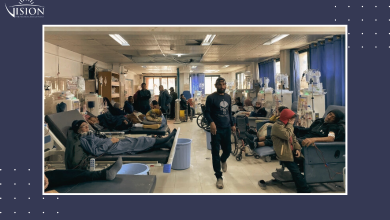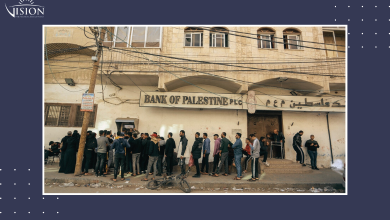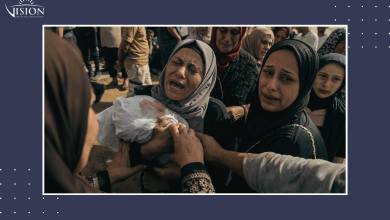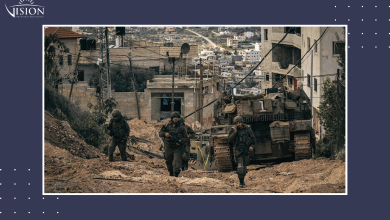The Summits of Aqaba and Sharm El-Sheikh: Motivations and Challenges
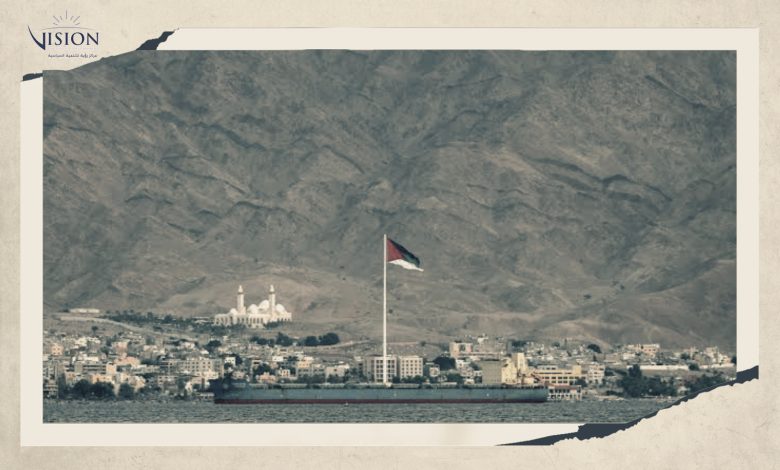
Ismat Mansour (1)
The Aqaba Summit and Sharm El-Sheikh brought both the Palestinians and Israelis together for negotiation for the first time in over ten years, under the sponsorship of Egypt, Jordan, and the United States, aiming to avoid any deterioration of the security conditions on the ground due to the escalation of tension, especially with the approaching month of Ramadan, where the repercussions of the potential deterioration, which has been warned against by American and Israeli security agencies, would be catastrophic and far-reaching both domestically, regionally, and strategically; due to the presence of an extremist government that does not recognize the two-state solution while seeking to undermine it in Israel, in conjunction with an unprecedented state of weakness and retreat within the Palestinian Authority. This poses the possibility of a complete collapse of the Palestinian Authority or the outbreak of confrontations that could lead to a third Intifada.
The summits held in Aqaba (February 26), and Sharm El Sheikh (March 19) reflect the growing concerns of sponsoring states regarding the repercussions of the current state of weakness that the Palestinian Authority is experiencing, the presence of a far-right Israeli government, and the sense of despair about the possibility of reaching peace agreements or even opening up a political horizon in the foreseeable future. Therefore, there is a tendency to settle for modest (achievable) goals that ensure getting through the coming months with minimal friction. Furthermore, this would help to rehabilitate the PA and ensure its ability to continue carrying out its security functions.
Motivations for the Summit:
The United States, Egypt, and Jordan exerted significant pressure on Benjamin Netanyahu and his government to participate in the series of meetings. The aim was to ensure a minimum level of security stability and to steer the Netanyahu government towards a path that would limit its settlement expansionist tendencies and curb their appetite for annexation and seizing as much land as possible, in which the two-state solution would become impossible, even in the long run.
In this summit, Israel found an opportunity to push the Palestinian Authority towards taking broader steps to confront the escalating resistance attacks, which the security apparatus was unable to handle. This is especially true with the approach of the month of Ramadan and the sensitivity of Al-Aqsa during this time. At the same time, it was to ensure not to clash with the United States, and to decrease fears of regional powerswith which it has diplomatic relations. More importantly, these meetings do not impose any political commitments or limit its aggression.
Despite popular pressure and opposition from Palestinian factions, and with no guarantees of a real political horizon, the Palestinian Authority chose to participate in these security-focused meetings. This is due to its severe financial crisis and the fear that rejecting the American and regional invitations would exacerbate its isolation and weaken it further. It has a fear also that may encourage extremist elements in the Netanyahu government to seize areas in the “C” zone, attack prisoners, and lead to a field escalation, which could result in its actual collapse.
All participating parties in these meetings found a good opportunity to create a framework and a dynamic capable of constraining the “Israeli” steps on one hand, and to exert pressure on the Palestinian side to play a greater security role on the ground in confronting the armed groups in the northern West Bank in exchange for the release of a portion of the withheld tax revenue by “Israel”, and to alleviate the financial constraints and ensure its ability to withstand.
There are various challenges at different levels confronting these meetings, in addition to “Netanyahu’s” denial to the outcomes and the calls from ministers not to abide by them. These levels can be outlined as follows:
“Israeli” level: There is an ideological alignment and political agreement between the components of the ruling coalition in “Israel” to reject the two-state solution, and a lack of desire to engage with the Palestinian Authority. Obviously, they prefer the security option over political options that may come with costs and restrictions that could be imposed on the PA. In addition to the absence of real external pressure from the United States, and the internal political arena and opposition in Israel are preoccupied with the unprecedented crisis that the country is currently facing.
Furthermore, Netanyahu’s weakness confront his partners lies in his conviction that he does not have an alternative coalition, considering that as the last chance to get rid of the sword of prison hanging over him. This makes him hostage to the mood and positions of the more extremist elements in his government, such as Bezalel Smotrich, leader of the Religious Zionism party, who called for the burning of the town of Hawara on the eve of the Aqaba summit, and Itamar Ben Gvir, leader of the Jewish Power party, who considered that what was achieved in Aqaba would remain in Aqaba. Furthermore, the absence of organized resistance that can inflicts losses on the occupation and force it to seek de-escalation with the Palestinian Authority and resistance factions.
Palestinian level: the Palestinian side has attended the Summits in its weakest state:
Amid a suffocating economic crisis caused by the Israeli occupation’s deduction of tax revenues collected on behalf of the Palestinian Authority, the decline in foreigner support from Western donors and Arab countries, mismanagement, accusations of corruption, and lack of oversight, the Palestinian government has been unable to pay its employees’ full salaries for over a year. This comes in the context of a factional boycott and popular rejection, with the aim from the Israelis to push the Palestinians into internal confrontation due to pressure on the authorities to confront armed groups in the northern West Bank.
Israel’s non-commitment to cease its aggression and incursions into Palestinian cities, targeting of resistance fighters, halting its campaign against prisoners, or freezing settlement activities, the absence of a genuine political horizon, and the restriction of meetings to procedural and security matters by the Palestinian Authority. This places a burden on the Authority to ensure the security of the occupation from one side, while it cannot fulfill these obligations due to Israeli aggression on one hand and the weakened state of the Authority on the other.
In addition, the nature of the resistance, which is characterized by individual and unorganized actions or small local formations, makes it difficult to fulfill such obligations. Moreover, the most significant factor is the existence of a strong and broad popular base and large popular support around resistance fighters.
Sponsors and mediators, none of the parties sponsoring the meetings in Aqaba and Sharm El-Sheikh has the ability (Jordan and Egypt) or the desire and will (the United States) to exert pressure on the Netanyahu government for reasons related to the interests, preoccupations, and situations of these countries, or due to an understanding of the nature of the Israeli coalition and the limits and possibilities of maneuvering with it. This situation has pushed these parties to focus on pressuring the Palestinian Authority, pushing it to confront the resistance factions and the strong popular support behind them. This situation is alarming and could lead to a civil war.
The mediators and sponsors started from an inverted assumption, which assumes that the real reasons for the escalation and the threat of explosive situations and entering into a comprehensive confrontation lie in the weakness that the Palestinian Authority is experiencing, and its inability to control the areas in which it exists. Therefore, strengthening, supporting, and qualifying its security elements are capable of solving the crisis. Starting from this assumption and building practical plans does not exempt the occupation’s practices, army invasions, executions, and settlement construction, etc. from its responsibilities, but rather imposes a burden on the Palestinian Authority that entails significant internal risks. It cannot fulfill it without having any political incentive (in the form of a promise to revive the peace process) to try it, which made the results of these meetings fail at the first test, whether it was the assassinations carried out by special forces in Jenin or the announcement of building hundreds of settlement units and new neighborhoods in the vicinity of Jerusalem.
The danger lies not only in the fact that the obligations imposed on the authority exceed its capabilities, but also in the fact that there is a redefining to its function, which will be limited to protecting the occupation’ssecurity, and in a way that makes it more hostage to the “Israeli” side in the midst of internal isolation. This makes its existence and ability to survive dependent on confronting its own people.
Finally, despite the political and security gains the Israelis achieved through its participation in the Aqaba and Sharm El-Sheikh summits, it is not expected that the outcomes will succeed in changing the reality on the ground due to their failure to include clear and binding formulas that curb the aggressiveness of the army on the ground and ensure the cessation of building or legitimizing settlements. The composition of the government coalition also puts Netanyahu in a weak position to face his partners on the far right and religious Zionist parties. This weakness was embodied at the peak of the domestic crisis erupted against the judicial reforms led by Netanyahu, and reached its peak after the decision to dismiss Defense Minister “Ya’akov Galant”, and Netanyahu’s submission to the blackmail of National Security Minister “Eitam Ben Gvir”, and theagreement to form a “National Guard” that reports directly to the minister, in exchange for his agreement to freeze and suspend the legislation of the reforms.
As for the Palestinians, the Palestinian Authority’s participation in the Aqaba and Sharm El-Sheikh summits without clear political guarantees and political horizon contributed to cementing the security and procedural-functional character of these meetings. This is not merely a decrease in Palestinian political ceiling or an acceptance of playing a (free) security role for the benefit of the occupation. Rather, it can be considered as legitimizing to the occupation’s crimes, aggressions, invasions of Palestinian cities, and the collective assassination campaigns carried out by its soldiers and special units against the resistance, by accepting terms such as “hot pursuit” or “time bomb,” and leaving the security conditions inside the PA’s areas under theestimates of occupation, and subject to a time limit (testing period).
This is completely in line with the settlement policies. These meetings did not succeed in creating monitoring mechanisms and clear formulas that obligate the occupation government to fulfill its commitments, but rather resulted in returning to build in settlements and legitimizing settlement outposts into an accepted matter.
These meetings gave the Netanyahu government a truce and a breather amidst the escalating domestic crisis, sharp international and American criticism towards its domestic policies and the Palestinian arena, in addition to the racist statements of ministers, and the unruliness of settlers and their militias in the cities and towns of the West Bank.
They left its hands free to continue settlement and security activities, while reducing the political ceiling of the Palestinian side and burdening it with financial and security responsibilities that it is unable to fulfill. These are factors that do not eliminate any of the causes of escalation and tension on the ground, but rather exacerbate them and increase the appetite of the right-wing government, its extremist figures, and settlers’ militias to persist in their aggression, while complicating and weakening the Palestinian Authority’s conditions, which consequently lead to the growth of resistance and its public support due to the daily friction with the occupation and settlers.
(1) A journalist specialized in Israeli affairs.


